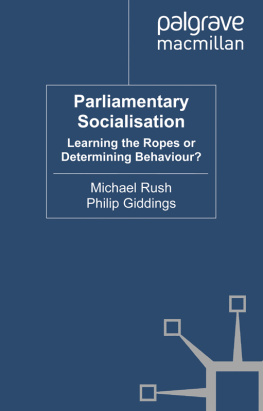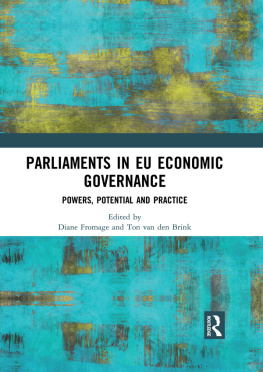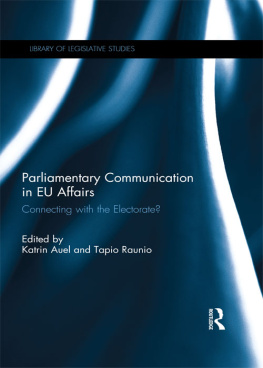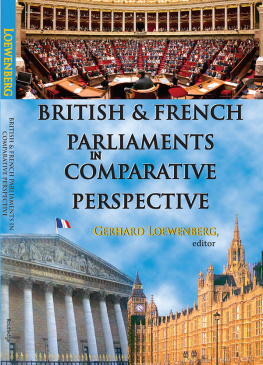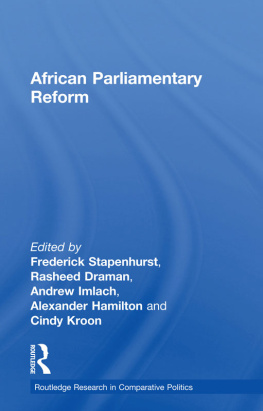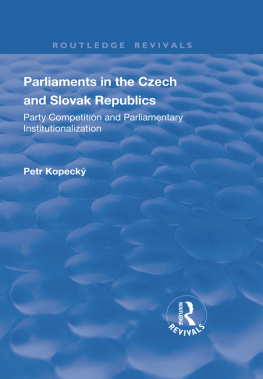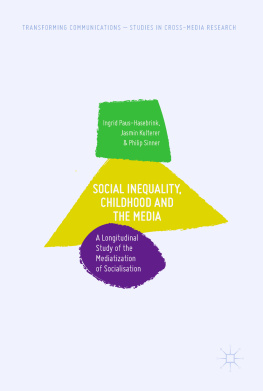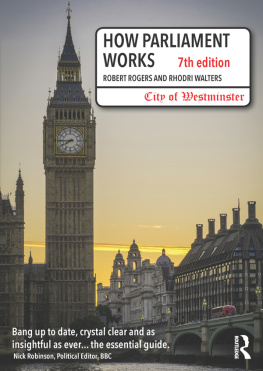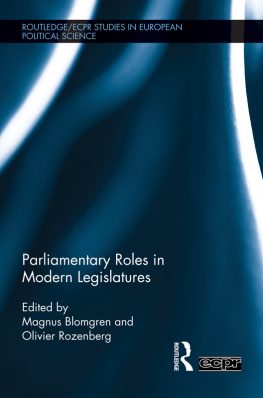Understanding Governance series
General Editor: R. A. W. Rhodes, Professor of Government, University of Tasmania and Distinguished Professor of Political Science, Australian National University
Understanding Governance encompasses all theoretical approaches to the study of government and governance in advanced industrial democracies. It has three longstanding objectives:
1. To understand the process of change
2. To develop theory to explain why change occurs
3. To set this change and its causes in comparative perspective.
The series includes titles that adopt post-structural and post-modern approaches to political science and challenge notions such as hollowing-out, governance, core executives, policy networks and the new institutionalism. It also publishes material with traditional institutional and historical approaches to topics such as prime ministers, ministers, the civil service and government departments. All titles meet not only the conventional standard of theoretical and empirical rigour but also seek to address topics of broad current interest that open the field of study to new ideas and areas of investigation.
Titles include:
Michael Rush and Philip Giddings
PARLIAMENTARY SOCIALISATION
Learning the Ropes or Determining Behaviour?
Paul t Hart and John Uhr (editors)
HOW POWER CHANGES HANDS
Transition and Succession in Government
Robert Hazell, Ben Worthy and Mark Glover
THE IMPACT OF THE FREEDOM OF INFORMATION ACT ON CENTRAL GOVERNMENT IN THE UK
Does FOI Work?
Ann Scott
ERNEST GOWERS
Plain Words and Forgotten Deeds
Kevin Theakston
AFTER NUMBER 10
Former Prime Ministers in British Politics
Titles previously published in the Transforming Government series include:
Simon Bulmer, Martin Burch, Caitrona Carter, Patricia Hogwood and Andrew Scott
BRITISH DEVOLUTION AND EUROPEAN POLICY-MAKING
Transforming Britain into Multi-Level Governance
Nicholas Deakin and Richard Parry
THE TREASURY AND SOCIAL POLICY
The Contest for Control of Welfare Strategy
Neil C. M. Elder and Edward C. Page
ACCOUNTABILITY AND CONTROL IN NEXT STEPS AGENCIES
Oliver James
THE EXECUTIVE AGENCY REVOLUTION IN WHITEHALL
Public Interest Versus Bureau-Shaping Perspectives
David Marsh, David Richards and Martin J. Smith
CHANGING PATTERNS OF GOVERNANCE IN THE UNITED KINGDOM
Reinventing Whitehall?
Iain McLean
THE FISCAL CRISIS OF THE UNITED KINGDOM
Edward C. Page and Vincent Wright (editors)
FROM THE ACTIVE TO THE ENABLING STATE
The Changing Role of Top Officials in European Nations
Hugh Pemberton
POLICY LEARNING AND BRITISH GOVERNANCE IN THE 1960s
B. Guy Peters, R. A. W. Rhodes and Vincent Wright (editors)
ADMINISTERING THE SUMMIT
Administration of the Core Executive in Developed Countries
R. A. W. Rhodes (editor)
TRANSFORMING BRITISH GOVERNMENT
Volume One: Changing Institutions
Volume Two: Changing Roles and Relationships
David Richards
NEW LABOUR AND THE CIVIL SERVICE
Reconstituting the Westminster Model
Martin J. Smith
THE CORE EXECUTIVE IN BRITAIN
Kevin Theakston
LEADERSHIP IN WHITEHALL
Kevin Theakston (editor)
BUREAUCRATS AND LEADERSHIP
Patrick Weller, Herman Bakvis and R. A. W. Rhodes (editors)
THE HOLLOW CROWN
Countervailing Trends in Core Executives
Understanding Governance
Series standing order ISBN 9780333715802
(outside North America only)
You can receive future titles in this series as they are published by placing a standing order. Please contact your bookseller or, in case of difficulty, write to us at the address below with your name and address, the title of the series and the ISBN quoted above.
Customer Services Department, Macmillan Distribution Ltd, Houndmills, Basingstoke, Hampshire RG21 6XS, England
Parliamentary Socialisation
Learning the Ropes or Determining Behaviour?
Michael Rush
Emeritus Professor of Politics, University of Exeter, UK
Philip Giddings
Head of the School of Politics and International Relations, University of Reading, UK


Michael Rush and Philip Giddings 2011
Foreword Peter Riddell 2011
All rights reserved. No reproduction, copy or transmission of this publication may be made without written permission.
No portion of this publication may be reproduced, copied or transmitted save with written permission or in accordance with the provisions of the Copyright, Designs and Patents Act 1988, or under the terms of any licence permitting limited copying issued by the Copyright Licensing Agency, Saffron House, 6-10 Kirby Street, London EC1N 8TS.
Any person who does any unauthorized act in relation to this publication may be liable to criminal prosecution and civil claims for damages.
The authors have asserted their rights to be identified
as the authors of this work in accordance with the Copyright, Designs and Patents Act 1988.
First published 2011 by
PALGRAVE MACMILLAN
Palgrave Macmillan in the UK is an imprint of Macmillan Publishers Limited, registered in England, company number 785998, of Houndmills, Basingstoke, Hampshire RG21 6XS.
Palgrave Macmillan in the US is a division of St Martins Press LLC, 175 Fifth Avenue, New York, NY 10010.
Palgrave Macmillan is the global academic imprint of the above companies and has companies and representatives throughout the world.
Palgrave and Macmillan are registered trademarks in the United States, the United Kingdom, Europe and other countries.
ISBN 978-0-230-31406-1 hardback
This book is printed on paper suitable for recycling and made from fully managed and sustained forest sources. Logging, pulping and manufacturing processes are expected to conform to the environmental regulations of the country of origin.
A catalogue record for this book is available from the British Library.
A catalog record for this book is available from the Library of Congress.
Printed and bound in Great Britain by
CPI Antony Rowe, Chippenham and Eastbourne
Contents
List of Tables and Figures
| Tables |
| The three roles of the Member of Parliament |
| Parliamentary activity and output in selected sessions |
| Attitudes and socialisation |
| Respondents completing all three questionnaires by party, age, gender and length of parliamentary service |
| Do you think that being a Member of Parliament should be a full time or a part time job? (% replying full time) |
| How do you expect to divide your time/how is your time divided between the various aspects of your job as an MP? (rank order scale 13) |
| In carrying out your role as a representative, which of the following do you think are the more important? (rank order scale 13) |
| Which of the following aspects of the job of being an MP do you think are the most important? (rank order scale 14) |
| In deciding how to act and vote in Parliament, do you expect to be/are you strongly influenced by the advice of your party leadership, your personal opinions, constituency opinion, representations from interest or pressure groups? (rank order scale 15) |
| Do you hope to become a minister in due course? (% replying yes) |
Next page
